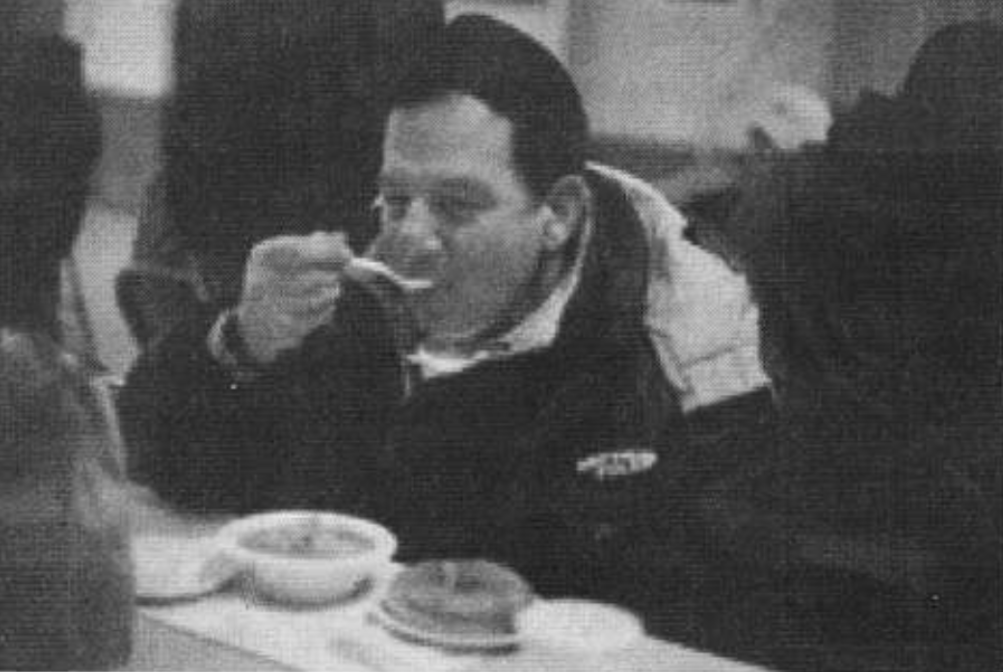Walk by Bethesda Presbyterian Church too quickly on a Saturday morning and you might miss the three small signs that provide the only hint of the small miracle happening inside. The old wooden signs, which say “Lunch Program” in bright red letters, lead people to two brown doors. Through the doors is the church kitchen, where on a Saturday morning there is a hustle and bustle unusual for a city still stirring from slumber. It’s just past 10 a.m., and some volunteers have already begun setting up tables and chairs. Others are cutting up vegetables, washing fruits, and preheating the oven. There is only one hour to prepare lunch before the 25 or so guests arrive, and there is plenty to do.
Since it began in the early 1990s, the Saturday Lunch Program has served hundreds of thousands of lunches to the homeless and working poor in Montgomery County. The program is funded by its parent organization, Bethesda Cares and also receives support from the church and from individual donors.
“Are we ready to open?” One volunteer asks at 11. One last check and the doors are unlocked. Guests file in and head straight to the serving counter. “What have you got?” One asks. On this blustery day, there is a choice of three hot casseroles, several types of sandwiches, and a hearty vegetable soup.
Part of what makes this program so popular is that every meal is different and some of the dishes are prepared from scratch in the hour before guests arrive. John and Donna, two longtime volunteers, have whipped up macaroni and cheese, meat lasagnas, sloppy joes, beef stew and spaghetti, among other classics. The program also makes an effort to accommodate guests’ diet and there is typically a vegetarian option on the menu.
The Saturday Lunch Program began in 1992 after Bethesda Cares contacted Bethesda Presbyterian Church about hosting a Saturday lunch for the homeless. Over the years, the lunch-only program has expanded to offer clothes and other necessities such as soap, shampoo, and toothpaste. “It’s kind of like a little community,” says Lois Elieff, who has headed the program since its inception. “It’s a safe, comfortable place for people to socialize.” These days, 25 to 30 low-income people gather for lunch and camaraderie at the church every Saturday. Guests come from all over Montgomery County and are among the area’s homeless and working poor.
Food for each meal comes from several sources. Panera Bread donates unsold bread and pastries every week. Bethesda Cares provides food, paper plates, and plastic ware. Students from local schools bring in sandwiches, drinks, and desserts. Members of Bethesda Presbyterian Church and other congregations donate various dishes. Occasionally, after parties, people donate their left overs.
Several times a year, the program does something extra special for guests. There is an annual pancake and sausage breakfast two weeks before Christmas. And, twice a year, there’s a cookout where volunteers fire up the grill and serve hot dogs, hamburgers and all the fixings. The idea for the cookout actually came from a guest, says John, adding that the program always welcomes suggestions.
Volunteers occasionally come up with ideas of their own. One couple celebrates their wedding anniversary every year by bringing lunch for all the guests. For the past three years, the young professionals chapter of the Organization of Chinese Americans has prepared wonton soup from scratch. Volunteers sometimes play the piano during lunch. And around Christmas guests receive gift bags containing gloves and other winter gear.
Elieff acknowledges there are challenges to running the program. In the wintertime, volunteers sometimes outnumber the guests. And in the summer, when many people are on vacation, there may be as few as three volunteers to prepare lunch for 30 people. Another difficulty is predicting whether there will be enough food. “Sometimes you go in there on a wing and a prayer,” says Elieff. But, she says, it has always worked out.
John says the program is successful because guests believe they are part of something special. When there are not enough volunteers, guests help clean up and put away the tables. When there is not enough food, guests share with one another. And the setting may contribute to the sense of community. When asked how the volunteers manage to set up and prepare all the food despite the problems that occur, John smiles and points to the heavens. “We are in a church,” he says.








